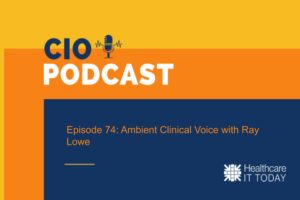Looking at all of you reading all the various HHS funding options, regulatory changes, and enforcement discretions we’ve shared as part of our COVID-19 coverage, I wanted to keep sharing some of the latest updates we’ve seen.
$100 Billion CARES Act Funding for Medical Providers
First up is reports that the $100 billion fund in the CARES Act to help out medical practices is starting to be direct deposited into organization’s accounts:
Getting positive reports from medical practices around the country receiving direct deposits this morning as part of the $100 billion fund authorized by the CARES Act. This is an important @MGMA priority. #MGMAAdvocacy @CMSGov @HHSGov More: https://t.co/NaJZLTu8Zh
— Anders Gilberg (@AndersGilberg) April 10, 2020
Here’s a look at how these payments are calculated:
Providers will be distributed a portion of the initial $30 billion based on their share of total Medicare FFS reimbursements in 2019. Total FFS payments were approximately $484 billion in 2019.
A provider can estimate their payment by dividing their 2019 Medicare FFS (not including Medicare Advantage) payments they received by $484,000,000,000, and multiply that ratio by $30,000,000,000. Providers can obtain their 2019 Medicare FFS billings from their organization’s revenue management system.
As an example: A community hospital billed Medicare FFS $121 million in 2019. To determine how much they would receive, use this equation:
$121,000,000/$484,000,000,000 x $30,000,000,000 = $7,500,000
I’m wondering what practices that chose to stop taking Medicare because of meaningful use and MACRA/MIPS are thinking about now that they don’t qualify for this money. Looks like they’re left out of this.
If you’re eligible for these payments, you can find details for the CARES Act Provider Relief Fund here. Looks like HHS has partnered with UnitedHealth Group to deliver the initial $30 billion. Providers will be paid via Automated Clearing House account information on file with UHG, UnitedHealthcare, or Optum Bank, or used for reimbursements from the Centers for Medicare & Medicaid Services (CMS). If you normally receive a paper check for reimbursement for CMS, a paper check will be sent in the next few weeks.
Medicare Accelerated Payments
Along with these payments for medical practices in the CARES Act, CMS has already approved ~$34 billion in accelerated or advanced payments to providers. The funds have been provided through the expansion of the Accelerated and Advance Payment Program to ensure providers and suppliers have the resources needed to combat the pandemic. Here are more details from the press release:
The streamlined process implemented by CMS for COVID-19 has reduced processing times for a request of an accelerated or advance payment to between four to six days, down from the previous timeframe of three to four weeks. In a little over a week, CMS has received over 25,000 requests from health care providers and suppliers for accelerated and advance payments and have already approved over 17,000 of those requests in the last week. Prior to COVID-19, CMS had approved just over 100 total requests in the past five years, with most being tied to natural disasters such as hurricanes.
The accelerated and advanced payments are a loan that must be paid back, but could help when cash flow is an issue. These payments are separate from the $100 billion CARES Act funds mentioned above.
More Blanket Waivers from CMS
CMS continues to relax some regulatory burdens. Here are some of the latest announcements:
- Doctors can now directly care for patients at rural hospitals, across state lines if necessary, via phone, radio, or online communication, without having to be physically present. Remotely located physicians, coordinating with nurse practitioners at rural facilities, will provide staffs at such facilities additional flexibility to meet the needs of their patients.
- Nurse practitioners, in addition to physicians, may now perform some medical exams on Medicare patients at skilled nursing facilities so that patient needs, whether COVID-19 related or not, continue to be met in the face of increased care demands.
- Occupational therapists from home health agencies can now perform initial assessments on certain homebound patients, allowing home health services to start sooner and freeing home-health nurses to do more direct patient care.
- Hospice nurses will be relieved of hospice aide in-service training tasks so they can spend more time with patients.
If you want to dive into all the details, this COVID-19 Emergency Declaration Blanket Waivers Fact Sheet outlines the ones mentioned above and many more.
HIPAA Enforcement Discretion for Community Based Testing Sites (CBTS)
In other news, OCR has announced another HIPAA Enforcement Discretion for Community Based Testing Sites (CBTS). These are all the remote testing sites that are being setup in parking lots and other unique venues all over the country. (Side Note: Check out Renown Health converting a Parking Deck into a patient care area) The basics of the HIPAA enforcement discretion for a CBTS is that it will apply if the CBTS has HIPAA violations that arose after good faith efforts.
If you want to dive into the CBTS HIPAA Enforcement Discretion, check out this article by Matt Fisher. He summarizes the common sense things every CBTS should be doing for privacy as outlined by OCR:
- Use and disclose only the minimum necessary amount of protected health information;
- Set up canopies or other forms of opaque barriers to afford some degree of privacy to individuals while samples or testing is occurring (this point should go without saying since even when blood donations, not covered by HIPAA, are conducted there is some form of minimal blockage when personal information is being taken);
- Create separation between individuals receiving testing in accordance with social distancing guidelines (this is really an obvious point since individuals being tested should not be stacked right next to each other even in the best of time);
- Take reasonable steps to prevent the media or members of the general public from observing the testing, including posting signs to not take photographs (these reasonable steps are similar to what should be done in any facility and go to debates around prohibiting photos or videos in a facility);
- Securely recording and transmitting information collected from individuals (securing data is a fundamental tenet of security); and
- Posting or making a Notice of Privacy Practices available (this is the only somewhat eyebrow-raising point since there could already be an established relationship with many individuals seeking testing).
As Matt Fisher appropriately notes, HIPAA should not be the barrier to you setting up a CBTS.
Medicare 2% Sequestration Payment Adjustment Suspended
Thanks to Kristie McNealy, MD for pointing out that we hadn’t shared that the 2% Medicare FFS Claims payment adjustment has been suspended this year as well:
I might have missed a mention of this, but CMS also dropped the 2% sequestration adjustment. pic.twitter.com/28JVe1gMt1
— Kristie McNealy, MD (@KristieMcNealy) April 10, 2020
Another day, another funding announcement, regulatory change, and HIPAA enforcement discretion. Or at least that’s what it feels like. Hopefully some of these details help you and your healthcare organization. Plus, it’s nice to finally see some of the funding starting to flow to providers.
If you’ve seen something else that’s been announced that we should share on Healthcare IT Today, let us know in the comments or on our Contact Us page.













